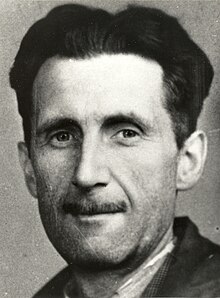Where did Mitt Romney get his 43 percent figure?
Move over, Goldilocks. Mitt Romney has fine-tooled your metrics.
As revealed yesterday by Mother Jones, Romney was videotaped at a May 17 fundraiser in Boca Raton giving affluent donors his assessment of the campaign with unbecoming clarity. He was particularly unbecoming about people who don’t vote for him. We’ll get to some of those candid remarks later.

Video capture of Boca Raton fundraiser for Romney
For now, it’s Romney’s take on the numbers that intrigues:
“There are 47 percent who are with him, who are dependent upon government, who believe that they are victims, who believe the government has a responsibility to care for them,” Romney said in a hidden-camera video of his remarks at a private fundraiser earlier this year posted on Monday on the left-wing Mother Jones magazine’s website.
“My job is not to worry about those people. I’ll never convince them they should take personal responsibility and care for their lives. What I have to do is convince the 5 to 10 percent in the center that are independents,” he said in remarks convincing donors to write checks for his campaign.”
Most commentary so far has focused on Romney’s ’47 percent’ number, and rightly so; see later. But Romney’s horse-race assessment reveals as much as his version of sociology. Going on to that ‘center’=’independents’ comment that follows, you get more than the inflammatory dismissal of 47 percent of voters. Use Romney’s arithmetic: 47 percent ‘pay no income tax’ etc; 5 to 10 percent are ‘independents’; that leaves 43 percent. Subtracting 47 percent from 100, then 10 percent (of ‘independents’) from 53–thus Obama 47 percent; Romney 43 percent.
Romney clearly thinks he has 43 percent, and only 43 percent, in the bag. Why? Who are the 43 percent? Where did he get that number? –Recent polls? Tax brackets? Income brackets? White voters? GOP registration?
Looks like not.
Where did Romney get his figures? CBS News had put out a recent widely reported opinion poll on the presidential race as of May 17. But it gave Romney the lead, and almost reverses Romney’s numbers:
“According to the survey, conducted May 11-13, 46 percent of registered voters say they would vote for Romney, while 43 percent say they would opt for Mr. Obama. Romney’s slight advantage remains within the poll’s margin of error, which is plus or minus four percentage points.”
The CBS poll, furthermore, was in line with much or most election 2012 polling in the time frame. As this wiki overview of election tracking polls and opinion polls shows, Romney was running fairly often behind and in the forties–but so was Obama. The poll closest to Romney’s numbers came out late April to early May, an Investor’s Business Daily/Christian Science Monitor/TIPP poll giving Obama 46 percent to Romney’s 43–with a helpful breakdown of voter demographics that would tend to jibe with Romney’s sociology.
Only one poll around then has Romney’s exact numbers: an NBC News-Wall Street Journal poll dated May 16-20 gives Obama 47 percent, Romney 43.
The catch is that the NBC-WSJ poll was not out yet, or not publicly.
Republicans, be it noted, tend to emphasize We’re-ahead! slogans when asking donors for money. So if Romney’s buddies in the corporate media shared a foretaste of recent polling with him, Romney knew in Boca Raton that he had some numbers to get out in front of. (Dems tend to use scare tactics–We’re going to lose!–for the same purpose.)
Back to a somewhat larger perspective, it’s interesting how closely Romney’s breakdown of the electorate into 1) takers, 2) his own voters, and 3) ‘independents’=’center’ tracks with the punditry most often put out by the larger media outlets (and by Fox News).
Romney’s amateur punditry also tracks closely with the pros on the question of what, exactly, constitutes an ‘independent’:
“What I have to do is to convince the five to ten percent in the center that are independents, that are thoughtful, that look at voting one way or the other depending upon in some cases emotion, whether they like the guy or not.”
Independent=center. Thoughtful=emotion. Emotion=”whether they like the guy or not.” Orwell could not have said it better.

Eric Arthur Blair, pseud. George Orwell
Mr. Romney has been called many things, but he is truly typified by Aldous Huxley’s model of the affluent businessman who, when he opens up, turns out to be filled with comfortable hogwash.
more to come
Update Sep 20:
Speaking of the Wall Street Journal, Media Matters now has this piece on Romney campaigners who write op-eds for WSJ–without having their connection to the Romney campaign clarified.
Looks like a two-way street.
